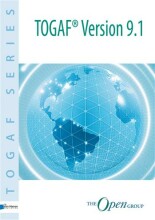Creation and Consolidation of Soviet sphere of influence
13 important questions on Creation and Consolidation of Soviet sphere of influence
USSR historical background in Europe. In what year did the Treaty of Brest-Litowsk take place?
- Planned division of Central Europe according to Molotov-Ribbentrop Pact.
- Actual territorial changes 1939-1940.
In what year did the Molotov-Ribbentrop Pact take place?
USSR features in Europe.
Hegemonic unification under Soviet control =
- Higher grades + faster learning
- Never study anything twice
- 100% sure, 100% understanding
People's democracies 1945-1949.
Heterogeneity of the occupied countries by the Red Army after WWII:
Different levels of Soviet participation/control at the creation of new CEEC governments. Name the levels for the countries: Hungary, Romania and Poland; Bulgaria and Czechoslovakia; Albania and Yugoslavia.
- Hungary, Romania and Poland. > Direct control.
- Bulgaria and Czechoslovakia. > Competing Soviet participation with internal political and social factors in each country.
- Albania and Yugoslavia. > Creation of Communist regimes just by internal political and social factors.
Explain the Sovietization process at CEEC:
- De-Nazification.
- Non-workers parties were prohibited.
- Pseudo-democratic and rigged elections.
- The soviet strategy of "gradual development towards a Socialist order" (without experiencing the dictatorship of proletariat stage).
- Finally, they get single-party regimes.
Describe four common characteristics of the new People's Democracies:
- Single party government (State vs. Party relation; democratic centralism; oversized bureaucratic state; unity of action).
- Centrally planned economy.
- No Foreign Policy autonomy.
Chronology 1945-1956. What happened in the USSR?
Chronology 1956-1968. What happened in the USSR?
Chronology 1968-1991. What happened in the USSR?
Zhdanov Doctrine of 1947. Soviet response to Truman Doctrine and Marshall Plan (same kind of discourse). Division of the world in two blocks:
- Imperialist and antidemocratic.
- Anti-imperialist and democratic.
No Communist way can divert from Moscow guidelines (Stalinization of CEECs).
Name three mechanisms of Soviet control of the Eastern block:
- Direct (Red Army).
- Indirect (Ideological mobilization).
- Bilateral agreements of cooperation and mutual defence.
Describe the Second stage of the Eastern Block organization:
- Kominform.
- CAME.
- Warsaw Pact.
The question on the page originate from the summary of the following study material:
- A unique study and practice tool
- Never study anything twice again
- Get the grades you hope for
- 100% sure, 100% understanding
































